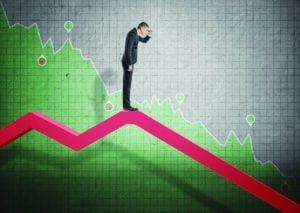Stark evidence of the damage the resurgent viral outbreak has caused the U.S. economy could come Friday when the government is expected to report that the pace of hiring has slowed significantly after a brief rebound in the spring.
As the coronavirus continues to transform a vast swath of the economy, it’s becoming evident that millions of Americans face the prospect of a permanent job loss that will force some to seek work with new industries or in new occupations. If so, that would lead to a slower recovery in the job market than if restaurants, hotels, bars and retail shops were able to fully reopen and recall all their laid-off employees. Few expect that to happen.
On Friday, economists expect the government to report that employers added 1.6 million jobs in July, according to data provider FactSet, and that the unemployment rate declined from 11.1 percent to a still-high 10.5 percent. At any other time, a million or more jobs would constitute an unheard-of increase. But July’s expected gain would fall way short of June’s 4.8 million increase and would signal that hiring has sharply slowed. It would also mean that the economy has regained barely 40 percent of the jobs that fell to the coronavirus.
The pandemic has lasted far longer than most Americans expected, with likely profound consequences for the economy. Traditional retail stores will probably never regain their pre-pandemic levels of sales or employment as consumers increasingly turn to internet purchases. Online health care will likely eliminate some doctors’ office jobs. And online videoconferencing will replace some portion of business travel. Those changes alone could destroy millions of jobs.
Michelle Holder, a labor economist at John Jay College, said it’s unlikely that many retail workers and others whose jobs are gone for good will find work this year, given that the viral outbreak will hold back hiring until a vaccine is widely available.
“It’s definitely going to be a drag on the economy,” she said.
Steven Davis, an economist at the University of Chicago, estimates that even after the virus has been brought under control, the proportion of people working from home will triple compared with pre-pandemic levels. That could result in the shuttering of many restaurants, coffee shops and other downtown businesses.
The real estate data firm Zillow said last week that most of its 5,400 employees will now be allowed to work from home indefinitely.
“This recession is unusual in the extent of permanent [job] reallocation that will ultimately result,” Davis said.
He and two co-authors have estimated that up to 40 percent of layoffs in March through May were permanent. That figure will likely rise, he said, the longer the pandemic squeezes the economy.
“We’re kind of past the stage where we’re quickly recalling workers to their old jobs,” Davis said, “and getting to the stage that people will need to get new jobs at new companies or in new industries.”
It is a trend that points to a grinding, sluggish recovery.
Many other companies are giving up and closing their doors. Dunkin’ Donuts said last week that it will close 800 stores this year, about 8 percent of its total. Lord & Taylor, America’s oldest retailer, and the parent company of Men’s Wearhouse and Jos. A. Bank both said Monday that they would file for bankruptcy protection. Last month, Brooks Brothers, another men’s chain deeply hurt by the decline in formal business clothes, sought bankruptcy protection.
One-third of bars and lounges have permanently closed nationwide, up from about one-quarter in late June, according to the small business data analysis firm Womply. So have one-fifth of restaurants and 12 percent of retailers.
Business shutdowns have fallen disproportionately on Black-owned businesses, which are more than twice as likely to close as white-owned small companies, according to a report from the New York Federal Reserve. Black-owned business are more often located in coronavirus hot spots and are in service industries like restaurants and retail that have been hit hardest by the outbreak, the New York Fed said.






